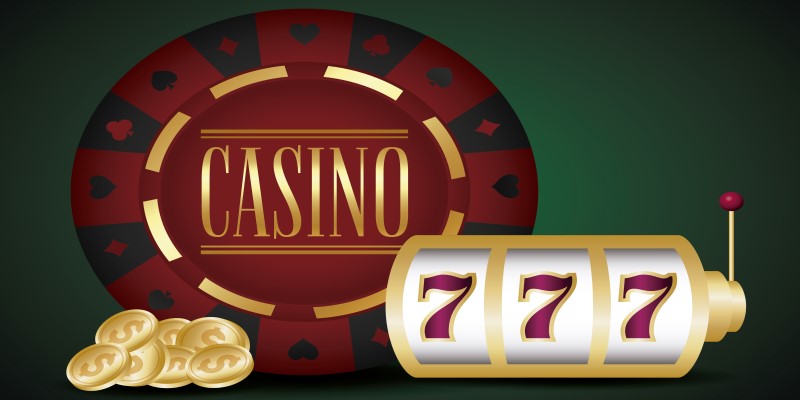Slot machines, often referred to as the “one-armed bandits,” are one of the demo slot most iconic and enduring forms of entertainment in casinos worldwide. Their colorful displays, captivating sounds, and seemingly endless variety make them irresistible to millions of players. But behind their flashy exterior lies a fascinating history, advanced technology, and an evolving role in the gaming industry. This article explores the unique allure of slot machines, their evolution, and the psychology behind their enduring popularity.
The Origins of Slot Machines
The story of slot machines begins in the late 19th century. The first true slot machine, the Liberty Bell, was invented in 1895 by Charles Fey, a San Francisco mechanic. This three-reel machine featured symbols like horseshoes, diamonds, spades, and the Liberty Bell, which gave the machine its name. Landing three Liberty Bells in a row would pay the jackpot of 50 cents—a modest reward by today’s standards.
Fey’s invention set the stage for a gaming revolution. By the early 20th century, slot machines became widely popular in bars, cigar shops, and even barber shops. Early machines dispensed prizes like gum or candy instead of cash, skirting gambling laws of the time. As they evolved, slot machines transitioned from mechanical to electronic, laying the groundwork for the digital age.
The Technology Behind the Magic
Modern slot machines are marvels of technology. While early versions relied on gears and levers, today’s slots are powered by complex software and Random Number Generators (RNGs). The RNG ensures that every spin is completely random, making it impossible to predict or manipulate outcomes.
Beyond the mechanics, the visual and auditory components of slot machines are carefully crafted to enhance the player experience. High-definition screens display vibrant graphics, while immersive soundtracks and celebratory jingles heighten the thrill of winning. Features like bonus rounds, free spins, and multipliers add layers of excitement, keeping players engaged.
The Psychology of Slots: Why Are They So Addictive?
One of the reasons slot machines are so popular is their ability to tap into basic human psychology. The concept of “variable rewards” is at the heart of their design. Players don’t win on every spin, but the unpredictable nature of payouts creates a sense of anticipation that keeps them coming back. This intermittent reinforcement triggers dopamine release in the brain, creating feelings of pleasure and excitement.
Visual and auditory cues also play a significant role. Flashing lights and celebratory sounds reinforce the idea of success, even when winnings are small or infrequent. Additionally, the illusion of control—such as allowing players to stop the reels manually—gives a false sense of influence over the outcome.
The Evolution of Slot Machines in the Digital Age
The advent of online casinos has revolutionized the world of slots. Players can now enjoy thousands of themed slot games from the comfort of their homes. Online slots incorporate advanced graphics, storylines, and interactive elements, appealing to a new generation of gamers.
The rise of mobile gaming has further expanded access to slot machines. Mobile apps allow players to spin the reels anytime, anywhere, making slots more accessible than ever. Virtual reality (VR) and augmented reality (AR) are also making inroads, promising even more immersive experiences in the future.
Themes and Variations: Something for Everyone
One of the reasons slot machines have such broad appeal is their incredible variety. Themes range from ancient civilizations and mythology to movies, TV shows, and pop culture. Some slots are simple and straightforward, while others offer complex gameplay with multiple paylines, cascading reels, and progressive jackpots.
Progressive jackpot slots, in particular, have become a phenomenon. These games link multiple machines or online games into a network, with a portion of each wager contributing to a growing jackpot. Payouts can reach millions of dollars, adding an extra layer of excitement and life-changing potential.
The Social Aspect of Slots
While traditionally a solitary activity, slot gaming has embraced social elements in recent years. Multiplayer slots, leaderboards, and in-game chat features create a sense of community among players. Social casino apps, which allow users to play slots for fun without wagering real money, have also gained popularity, attracting casual gamers who enjoy the entertainment without financial risk.
The Future of Slot Machines
The future of slot machines is bright, with technology continuing to push the boundaries of what’s possible. Artificial intelligence and machine learning are being used to personalize the gaming experience, tailoring recommendations based on individual preferences. Blockchain technology is also being explored for secure and transparent transactions.
As the gaming industry evolves, one thing remains certain: slot machines will continue to captivate players with their blend of chance, excitement, and innovation. Whether in a bustling casino, on a computer screen, or through a mobile app, the timeless appeal of slots shows no signs of slowing down.
Conclusion
Slot machines are more than just games of chance; they are a testament to human creativity and technological progress. From their humble beginnings as mechanical devices to the digital marvels of today, slots have become a cultural phenomenon that transcends generations. Their ability to adapt and innovate ensures they will remain a cornerstone of the gaming industry for years to come.

